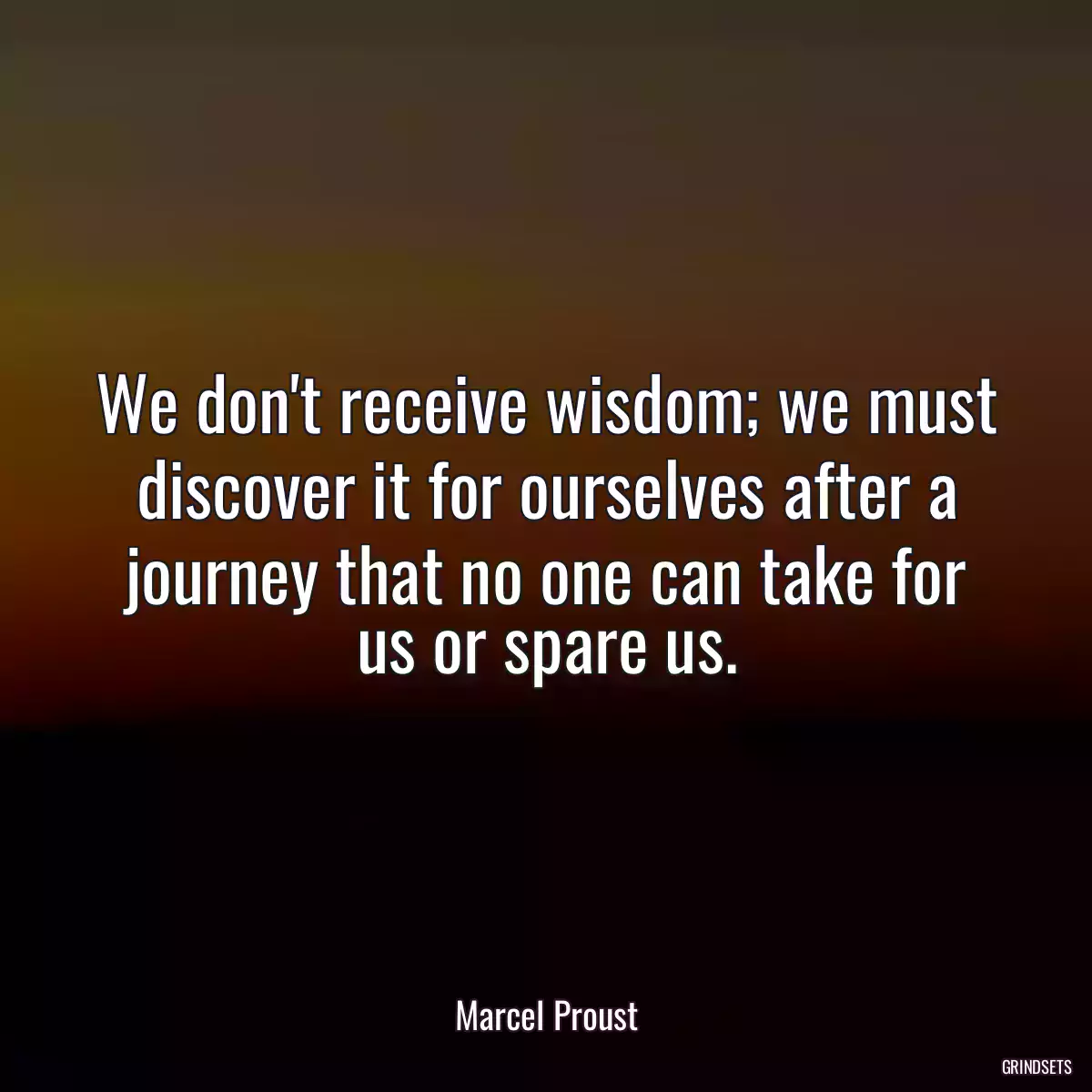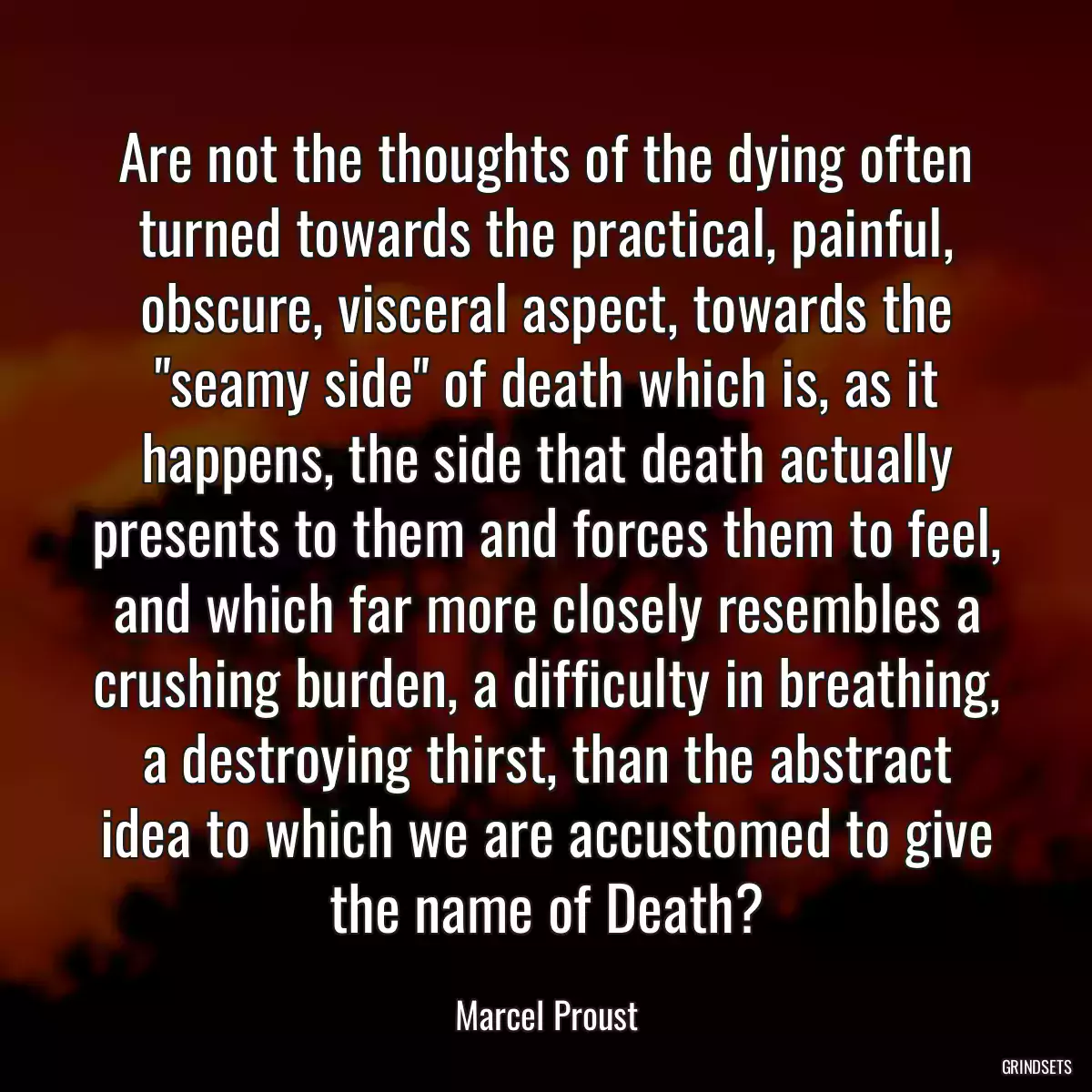
Quotes Marcel Proust
Find dozens of Marcel Proust with images to copy and share.

Let us be grateful to people who make us happy; they are the charming gardeners who make our souls blossom.
The truth is that men can have several sorts of pleasure. The true pleasure is the one for which they abandon the other.
For everyone who, having no artistic sense-that is to say, no submission to subjective reality-may have the knack of reasoning about art till doomsday, especially if he be, in addition, a diplomat or financier in contact with the 'realities' of the present day, is only too ready to believe literature is an intellectual game which is destined to gradually be abandoned as time goes on.
You may also like
We are able to find everything in our memory, which is like a dispensary or chemical laboratory in which chance steers our hand sometimes to a soothing drug and sometimes to a dangerous poison.
May you always see a blue sky overhead, my young friend; and then, even when the time comes, as it has come for me now, when the woods are black, when night is fast falling, you will be able to console yourself, as I do, by looking up at the sky.
When we are in love, our love is too big a thing for us to be able altogether to contain it within ourselves. It radiates towards the loved one, finds there a surface which arrests it, forcing it to return to its starting-point, and it is this repercussion of our own feeling which we call the other's feelings and which charms us more then than on its outward journey because we do not recognise it as having originated in ourselves.
For neither our greatest fears nor our greatest hopes are beyond the limits of our strength--we are able in the end both to dominate the first and to achieve the second.
The heart changes...but we learn of it only from reading or by imagination; for in reality its alteration, like that of certain natural phenomena, is so gradual that, even if we are able to distinguish, successively, each of its different states, we are still spared the actual sensation of change.

In love, happiness is an abnormal state.
Le bonheur est dans l'amour un e tat anormal. In love, happiness is abnormal.
We can sometimes find a person again, but we cannot abolish time. And so on until the unforeseen day, gloomy as a winter night, when one no longer seeks that girl, or any other, when to find her would actually scare one. For one no longer feels that one has attractions enough to please, or strength enough to love. Not, of course, that one is in the strict sense of the word impotent. And as for loving, one would love more than ever. But one feels that it is too big an undertaking for the little strength one has left.
Indeed, among the lesser auxiliaries to success in love, an absence, the declining of an invitation to dinner, an unintentional, unconscious harshness are of more service than all the cosmetics and fine clothes in the world.
When a belief vanishes, there survives it -- more and more vigorously so as to cloak the absence of the power, now lost to us, of imparting reality to new things -- a fetishistic attachment to the old things which it did once animate, as if it was in them and not in ourselves that the divine spark resided, and as if our present incredulity had a contingent cause -- the death of the gods.
Neurosis has an absolute genius for malingering. There is no illness which it cannot counterfeit perfectly. If it is capable of deceiving the doctor, how should it fail to deceive the patient
It is the wicked deception of love that it begins by making us dwell not upon a woman in the outside world but upon a doll inside our head, the only woman who is always available in fact, the only one we shall ever possess, whom the arbitrary nature of memory, almost as absolute as that of the imagination, may have made as different from the real woman as the real Balbec had been from the Balbec I imagined- a dummy creation that little by little, to our own detriment, we shall force the real woman to resemble.
Our vanity, our passions, our spirit of imitation, our abstract intelligence, our habits have long been at work, and it is the task of art to undo this work of theirs, making us travel back in the direction from which we have come to the depths where what has really existed lies unknown within us.
You may also like

Are not the thoughts of the dying often turned towards the practical, painful, obscure, visceral aspect, towards the "seamy side" of death which is, as it happens, the side that death actually presents to them and forces them to feel, and which far more closely resembles a crushing burden, a difficulty in breathing, a destroying thirst, than the abstract idea to which we are accustomed to give the name of Death?
The fixity of a habit is generally in direct proportion to its absurdity.